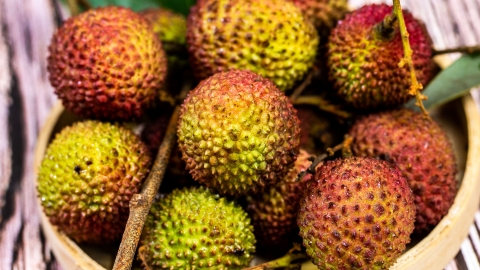Can I eat lychee after having a mole removed?
Generally speaking, whether one can eat lychees after mole removal depends on the wound recovery and individual constitution. If the wound heals well and there is no allergic reaction, a moderate amount of lychee consumption is acceptable. However, it is not recommended if the wound becomes infected or if the person has a known allergy to lychees. Detailed explanations are as follows:

If there are no signs of infection such as redness, swelling, or discharge from the wound after mole removal, and the wound is healing normally, moderate consumption of lychees can provide nutrients like vitamin C and glucose, which may help promote wound healing. Lychees do not contain irritating ingredients, and generally will not negatively affect wound recovery if consumed in moderation.
If inflammation or infection symptoms such as pus develop after mole removal, a bland diet is recommended. Since lychees are warm in nature, excessive consumption may increase internal heat and hinder infection control. For individuals allergic to lychees, consumption may trigger allergic reactions such as skin itching and rashes, which can interfere with wound healing. In such cases, lychees should be avoided.
When consuming lychees after mole removal, intake should be controlled in terms of quantity. Fresh lychees should be selected, and contact with the wound should be avoided during consumption. If any discomfort at the wound site or allergic reactions occur, consumption should be stopped immediately. A light and easily digestible diet should be prioritized, along with increased intake of vegetables and fruits to promote wound healing.








